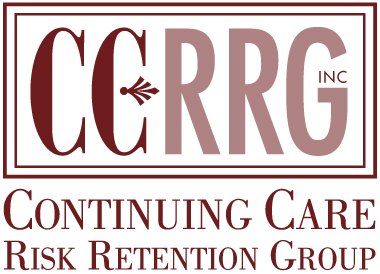Why Site Visits are Important
Tapping Into Our Expertise and Experience

Site visits used to be a common and standard benefit offered to long term care facility clients by their insurance companies. However, most insurance companies have stopped conducting site visits due to their expense –often in an effort to serve their shareholders, by cutting costs –but not so with Continuing Care.
At Magnolia LTC/Continuing Care RRG, we are proud to say that we are one of very few companies that still provide this high-touch benefit and service to our clients. While we understand that some operators might have anxiety about having a site visit, please know that site visits, as performed by employees of Magnolia LTC, are not invasive and are meant to put your mind at ease –they are not meant to “catch” you or your team. And, while site visits do cost money, we believe that they actually save our clients money in the long run in several ways.
I am the Human Resources and Risk Management Director for a nursing home management company. We oversee 5 administrators, over 300 patients and over 375 employees.
Steve Ottenbrite,
Director of Risk Management, Magnolia LTC., has been very helpful and resourceful when it comes to assisting me with situations that have come up. I like that they come in and conduct their walk throughs, answer questions that I might have or need help with. Even with the pandemic they were still able to assist me and my staff over the phone or via email. –Caravan Operations
First, site visits are a way for us to build our relationship with our clients. Since we view ourselves as your long-term partner in business, we know that we both share the same goal: to provide the best care and service possible to your residents. Thus, excellent customer service is at the cornerstone of our work with you and we understand that being accessible and available to our clients is important. We want you to know who you are doing business with, who is at the other end of the phone when you call, and who you will be working with in the event of a claim.
The Long Term Care industry is a small one full of many nuances and if you are not a part of this industry you probably don’t understand it. CCRRG knows and understands this industry…I do not have to explain anything to them; not the medicine, not how LTC is different than a hospital, not the survey process, not the documentation, nothing! They know the industry. Simply put Stephen and Kelene are the people I want to work with not the people I am forced to work with. –Prestige Healthcare
Second, site visits allow us to learn
more about your business and to stay up-to-date on any changes to your business that may impact your liability exposure –invoking the old axiom “an ounce of prevention is worth a pound of cure.” This ultimately allows us to ensure that you are not only adequately and appropriately covered, but we are also able to better tailor your coverage. We understand that LTC policies are sophisticated and expensive and that you need to make sure that you are properly covered, while also not paying for coverage that you don’t need.
Third, we can offer you advice from 20 years of experience with Continuing Care, working with hundreds of facilities, as well as the decades of experience many of our staff have from previously running LTC facilities. We can provide you with best practices, an extensive library of proactive interventions, continuing education for your healthcare and administrative staff, and feedback to help minimize your facility’s risk and exposure which can, again, provide significant cost savings by helping to prevent accidents and lawsuits. With our expertise, you can better protect and serve your clients.
Magnolia is one of the most innovative program managers we’ve worked with. Their deep knowledge of Long Term Care is unmatched and we find ourselves continuing to turn to them when we have questions about the long term care space. They are a perfect partner and a pleasure to work with. –AI Insurance
Partner with us so you can tap into our expertise for the betterment of your facility today!






